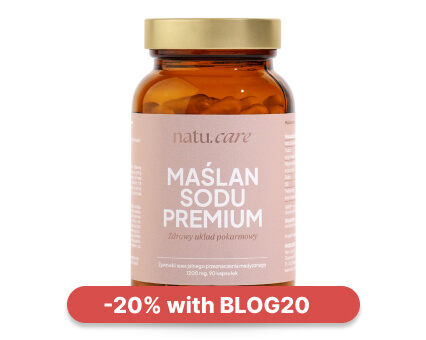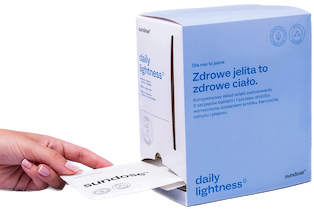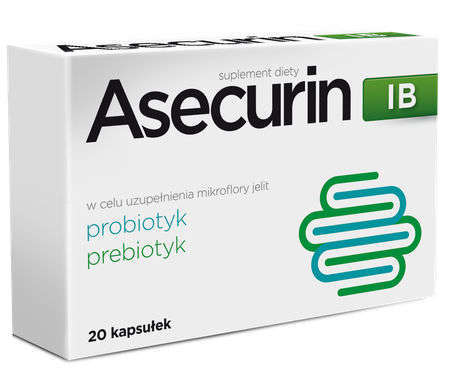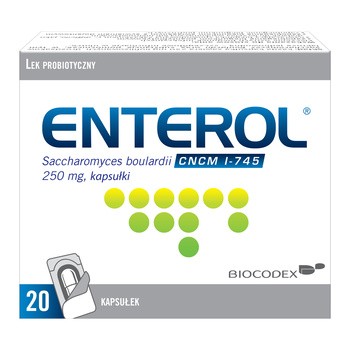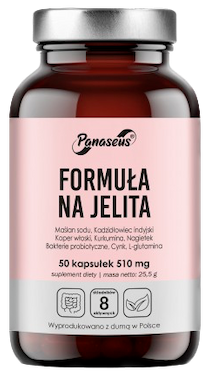When are probiotics harmful? Contraindications and symptoms of excess
See what the contraindications to taking probiotics are and when the bacteria can harm you.


Learn more about our editorial process
.

Learn more about our editorial process
.

Learn more about our editorial process
.

Learn more about our editorial process
.
Why you can trust us
Articles on Natu.Care are written based on scientific research, data from government websites and other reliable sources. The texts are written in cooperation with doctors, nutritionists and other health and beauty experts. Articles are reviewed before publication and during significant updates.
.Learn more about our editorial process
.Information about advertisements
Content on Natu.Care may contain links to products from the sale of which we may receive a commission. When creating content, we adhere to high editorial standards and take care to be objective about the products discussed. The presence of affiliate links is not dictated by our partners, and we select the products we review ourselves completely independently.
.Learn more about our terms and Conditions
.Probiotics are the natural inhabitants of your gut - you have trillions of them inside you. So it would seem that therapy with them is safe and shouldn't cause serious side effects... After all, they are your friends. And yet, despite this, they can sometimes cause harm.
Probiotics should be avoided by people with serious illnesses that affect immunity. But beneficial bacteria can harm not only in such extreme cases. Sometimes we can lead to their overgrowth, or simply overdo and make enemies out of friends.
From this article you will learn:
- Who should avoid probiotics. .
- How you can overdose on probiotics. .
- How an overabundance of beneficial bacteria manifests itself.
- How probiotics can cause an overdose.
- What side effects can occur after taking probiotics. .
- What are the principles of safe probiotic supplementation. .
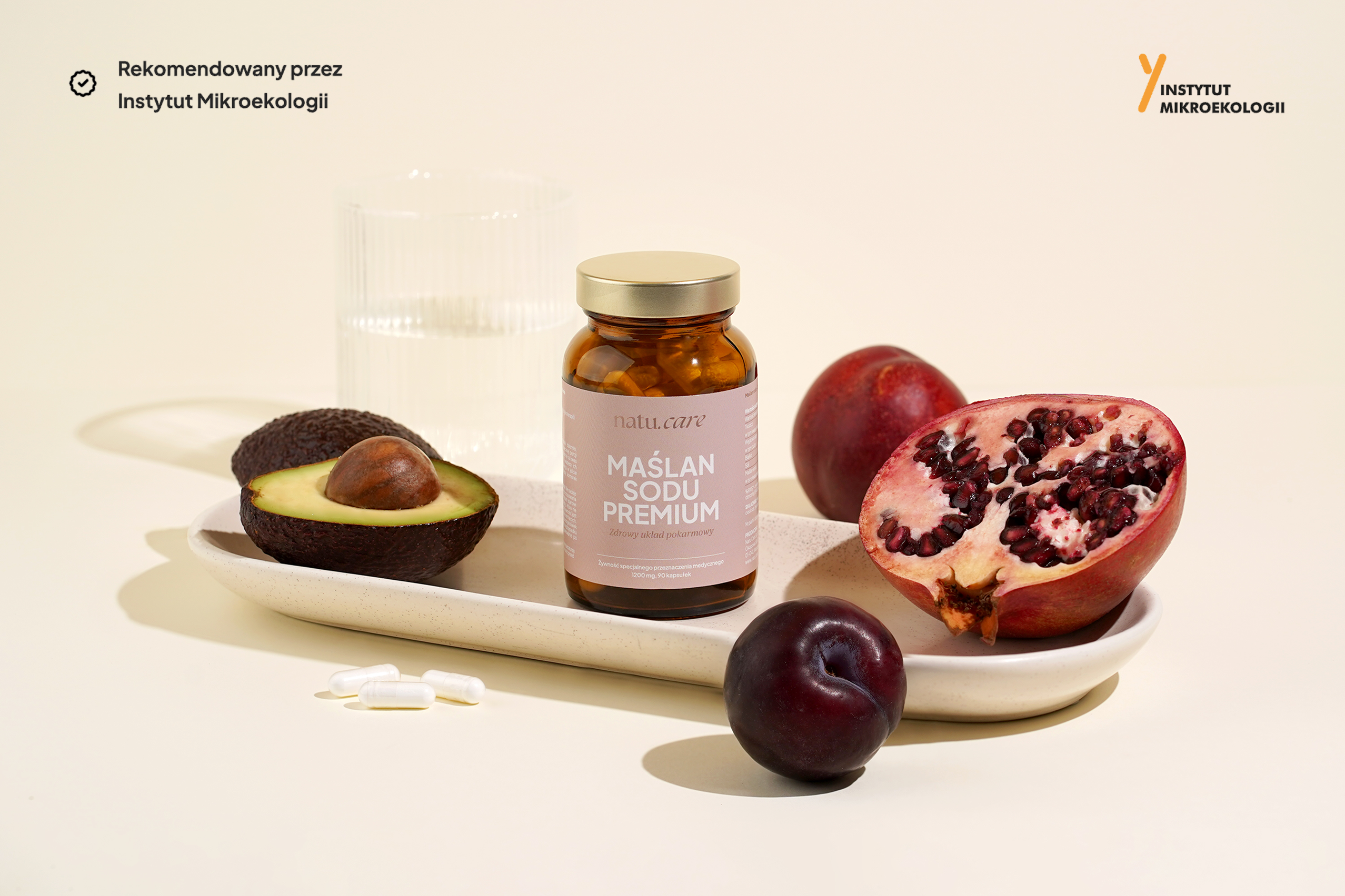
Odkryj korzyści, jakie niesie ze sobą Maślan Sodu Premium od Natu.Care!
Natu.Care Maślan Sodu Premium
Poznaj Maślan Sodu Premium – najwyższej jakości suplement wspierający zdrowie jelit. Maślan sodu pomaga w regeneracji nabłonka jelitowego, poprawia trawienie i wspiera naturalną równowagę mikroflory.
Sprawdź cenę
W końcu się lepiej czuję! Pożegnałam się ze wzdęciami i zaparciami a do tego poprawił się stan mojej cery bo zdrowe jelita to też zdrowa i piękna skóra. Polecam!@Klaudia F.
See also:
.
- Probiotics
- Prebiotics
- Synbiotics
- Psychobiotics
- Sodium butyrate
- Butyric acid
- Natural probiotic
- Best probiotics for the gut
- Good probiotics for irritable bowel
- Probiotics during pregnancy and lactation
- Probiotics for weight loss
Can probiotics harm you?
.
Probiotics can harm you if you overdose on them or suffer from diseases that increase the possibility of bacteria from the digestive system entering the bloodstream. These include cancer, severe immune disorders or patients wearing an intravenous central catheter. People with food intolerances and allergies should also be cautious - probiotic preparations often contain lactoseand.
, for example.
Who should not take probiotics?
.
Most scientific studies consider probiotics safe for use. They usually do not cause side effects, and if they do occur, they are mild gastrointestinal discomforts.
The majority of research studies have found probiotics to be safe.
Nevertheless, there are some groups of people for whom taking probiotics may be dangerous. This includes patients with serious illnesses such asand:
- immune disordered syndromes, .
- HIV/AIDS, .
- cancer (during radio- and chemotherapy), .
- short bowel syndrome, .
- perforations of the intestine, .
- intestinal obstruction, .
Probiotics are also not given to organ transplant patients, especially if they are receiving induction immunosuppressionand.
.
Allergic people and those with food intolerances should also be wary of probiotics. Many preparations contain lactose and other substances in their composition, which can cause strong and undesirable reactions in the bodyand.
.
Therefore, always check the composition of a particular probiotic before buying it - this will not only ensure that the bacterial strains are properly labelled, but also avoid unpleasant 'allergic' surprises.
.
Important
If you suffer from any ailment, always ask your doctor's opinion before starting to take probiotics. Only a specialist will be able to confirm whether the live bacteria cultures will be safe for you and will not interact with medication (if you are taking any).
.
Can a probiotic be overdosed?"
.
Any medicine in excess can become a poison. The same applies to probiotics. Even if you are a healthy person and have no contraindications to taking these beneficial bacteria, you can harm yourself. Some of the most common probiotic sins include:
- taking too large a daily portion, .
- taking too long a supplementation period,
- consuming several supplements
- consumption of several probiotic preparations at the same time, .
For probiotics to work effectively, they need to be taken for several weeks to several months. However, therapy longer than 4-6 weeks should be recommended to you by a doctor who knows your state of health and your body's needs. This is because it will only be appropriate in specific cases.
For more than 4-6 weeks, you should be advised to take the treatment by your doctor.
We still have too few studies confirming the safety of using probiotics for a very long time..
 .
.
Katarzyna Grajpermagister of pharmacy
.- .
You may also be unknowingly using more than one preparation that contains probiotic bacteria in it. This is important: not all preparations containing strains of bacteria need to have in their name probiotic, synbiotic or other "biotic".
Taking several probiotic strains at the same time, even well-studied ones with documented effects, can carry adverse effects. We can never be sure whether the strains will 'work' well together, so such a treatment should always be consulted with a doctor..
 .
.
Katarzyna Grajpermagister of pharmacy
.- .
A better idea is, for example, a two-week treatment with one probiotic and then switching to another. This way, we can catch possible side effects more easily," adds pharmacist.
This is precisely why it is so important to read the ingredients of the remedies you are taking. This applies to both medicines and dietary supplements - not just those with probiotics - sometimes you may be surprised. For example, some immune supplements, hair loss or even protein supplements contain probiotic formulas in their ingredients.
And finally: more is not at all better. There is no point in taking a larger daily dose of probiotics than the one recommended by your doctor or indicated by the manufacturer of a particular formula.
And what is the risk of taking more than the recommended daily dose?
And what are the risks of not following these rules? By taking too many probiotics, you can lead to an overgrowth of bacterial flora in the gut, i.e. SIBO syndromeand. When it comes to probiotic supplementation, to excess ... your stomach hurts.
The best probiotics and other products for gut health
Premium Sodium Butyrate
Product description
Premium Sodium Butyrate is a natural support for your digestive system. With a high dose of butyric acid (940 mg), it supports the regeneration of the intestinal mucosa, improving gut health and function, and aids in the absorption of nutrients. By taking care of your intestines, you're taking care of the health of your entire body.
Studies involving people suffering from irritable bowel syndrome confirm that sodium butyrate is ideal for supporting issues related to bacterial flora imbalances (for example, after antibiotic therapy), constipation and diarrhea, inflammation of the intestinal mucosa, or a diet low in fiber.
Premium Sodium Butyrate capsules are made using the innovative DRcaps® technology. This guarantees that the active ingredients in the product are protected from the destructive effects of stomach acids and digestive enzymes. As a result, we can be sure that the beneficial ingredients are released in the small intestine and are fully absorbed by our body.
Premium Sodium Butyrate from Natu Care is 100% tested, and its composition contains only the highest quality raw materials.
Pros and cons
Pros:
- Supports digestive system function
- Helpful for various gastrointestinal conditions, including IBS
- High dose of butyric acid in each capsule
- Eco-friendly, clean, and tested composition
- Free from added sugar, gluten, GMOs, and lactose
- Innovative capsule technology - DRcaps
Cons:
- None
Additional Information
Take 3 capsules daily at any time of the day, preferably with a meal. Swallow the capsules whole with water.
Premium Sodium Butyrate is intended for adults.
The product should be used under medical supervision.
User review
I've been using the product for 2 weeks. My stomach feels lighter, and my digestion has improved. I recommend it.
Sundose° Daily Lightness°
Product description
Sundose° Daily Lightness° is a formula thatós supports the stomach and liver, reduces the frequency of gasóing and bloating, and supports optimal digestion. The formula contains no unnecessary additivesós, and the composition of the active ingredients (e.g. curcumin with piperine) mutually enhances their absorption.
The dietary supplement from Sundose comes in two flavour versions: orange and green.
Pros and cons
Sundose° Daily Lightness° is a formula thatós supports the stomach and liver, reduces the frequency of gasóing and bloating, and supports optimal digestion. The formula contains no unnecessary additivesós, and the composition of the active ingredients (e.g. curcumin with piperine) mutually enhances their absorption.
The dietary supplement from Sundose comes in two flavour versions: orange and green.
Additional information
Sundose° Daily Lightness° is a formula thatós supports the stomach and liver, reduces the frequency of gasóing and bloating, and supports optimal digestion. The formula contains no unnecessary additivesós, and the composition of the active ingredients (e.g. curcumin with piperine) mutually enhances their absorption.
The dietary supplement from Sundose comes in two flavour versions: orange and green.
Sundose° Daily Lightness° is a formula thatós supports the stomach and liver, reduces the frequency of gasóing and bloating, and supports optimal digestion. The formula contains no unnecessary additivesós, and the composition of the active ingredients (e.g. curcumin with piperine) mutually enhances their absorption.
The dietary supplement from Sundose comes in two flavour versions: orange and green.
Asecurin IB
Product description
Asecurin IB is a synbiotic, i.e. a combination of a probiotic and a prebiotic. It contains bacteria and yeast to support the intestines and digestive system, as well as inulin, whichós food for these microorganisms. The addition of a prebiotic supports and accelerates the growth of beneficial bacterial flora in the intestines.
Pros and cons
Asecurin IB is a synbiotic, i.e. a combination of a probiotic and a prebiotic. It contains bacteria and yeast to support the intestines and digestive system, as well as inulin, whichós food for these microorganisms. The addition of a prebiotic supports and accelerates the growth of beneficial bacterial flora in the intestines.
Additional information
Asecurin IB is a synbiotic, i.e. a combination of a probiotic and a prebiotic. It contains bacteria and yeast to support the intestines and digestive system, as well as inulin, whichós food for these microorganisms. The addition of a prebiotic supports and accelerates the growth of beneficial bacterial flora in the intestines.
Biocodex Enterol
Product description
Enterol is an OTC medicine containing a strain of yeastów particularlyóhelpful in the treatment of diarrhoea caused by infections or so-called travel diarrhoea. It is also recommended as a protective treatment of the intestines during antibiotic intake.
.
Pros and cons
Enterol is an OTC medicine containing a strain of yeastów particularlyóhelpful in the treatment of diarrhoea caused by infections or so-called travel diarrhoea. It is also recommended as a protective treatment of the intestines during antibiotic intake.
.
Additional information
Enterol is an OTC medicine containing a strain of yeastów particularlyóhelpful in the treatment of diarrhoea caused by infections or so-called travel diarrhoea. It is also recommended as a protective treatment of the intestines during antibiotic intake.
.
Enterol is an OTC medicine containing a strain of yeastów particularlyóhelpful in the treatment of diarrhoea caused by infections or so-called travel diarrhoea. It is also recommended as a protective treatment of the intestines during antibiotic intake.
.
Product description
Using Panaseus Digestive Formula can help improve intestinal health by supporting the intestinal barrier, reducing inflammation, protecting against damage and restoring healthy intestinal microflora.
Experience a rós difference in gut function with plant extracts, amino acids and probiotic bacteria.
Pros and cons
Using Panaseus Digestive Formula can help improve intestinal health by supporting the intestinal barrier, reducing inflammation, protecting against damage and restoring healthy intestinal microflora.
Experience a rós difference in gut function with plant extracts, amino acids and probiotic bacteria.
Additional information
Using Panaseus Digestive Formula can help improve intestinal health by supporting the intestinal barrier, reducing inflammation, protecting against damage and restoring healthy intestinal microflora.
Experience a rós difference in gut function with plant extracts, amino acids and probiotic bacteria.
Symptoms of probiotic excess
Symptoms of probiotic excess include unpleasant gastrointestinal complaints such as persistent flatulence, abdominal pain, constipation or diarrhoea that appears out of nowhere and lasts for a long time. These symptoms are indicative of small intestinal bacterial overgrowth syndrome (SIBO). Left untreated, they can lead to malabsorption of vitamins and minerals from food.
As you can see, these symptoms are very similar to those resulting from microbiota depletion. However, if they have appeared during or at the end of a probiotic treatment - stop the supplementation immediately and see your doctor. SIBO syndrome can be confirmed by performing a special hydrogen-methane test of exhaled air. Another way is to perform a stool test.
SIBO syndrome can be effectively treated. This is usually treated with antibiotics and appropriate modification of dietand.
Side effects of probiotics
- .
It is important to know that even when taken correctly, probiotics can cause some side effects. Although research suggests they are safe preparations, sometimes people taking them complain ofand:
- gastrointestinal distress, .
- gases, .
- bulging in the abdomen (stimulated intestinal peristalsis), .
- diarrhoea, .
These symptoms, however, should not be very severe and last more than a few days after the start of treatment. If they are not severe and subside quickly - you do not need to stop supplementation. Your body needs a while to get used to the new guests in the intestines. However, if your symptoms worsen - stop taking the product and see your doctor.
- .
Another type of side effects are those resulting from allergy to a specific ingredient in the preparation. You may then experience:
- skin rash, .
- cough,
- cough.
- swelling (especially of the throat and tongue),
- difficulty in breathing,
- difficulty in breathing.
- difficulty in breathing, .
An allergic reaction is an absolute indication to discontinue a probiotic preparation. If you notice difficulty breathing or swelling in the throat and tongue area, contact your doctor immediately -these can be symptoms of life-threatening anaphylactic shockand.
How to take probiotics safely
- .
Ahead of you 5 simple steps on how to safely handle probiotics:
- To avoid overdoing it and hurting yourself, take probiotics according to the instructions on the packet or your doctor's directions. They should usually be taken on an empty stomach, about 30 minutes before a meal. Choose high quality preparations that contain well-labelled strains of bacteria and testing to confirm the quality of the product. .
- Never exceed the recommended treatment period or daily servings of probiotics. .
- Beware of potential side effects such as bloating, nausea or diarrhoea. If they occur, you can help yourself by reducing the dose and gradually increasing it back after some time.
- Drink plenty of water.
- Drink plenty of water to help the probiotics move through the digestive system. .
- If you are taking antibiotics, wait at least 2 hours before taking a probiotic. Antibiotics can kill the bacteria, which will reduce the effectiveness of the product.
- .
- .
Magister of Pharmacy Katarzyna Grajper throws in a handful more valuable tips:
- There are probiotic strains that are resistant to antibiotics and you can take them at the same time for convenience - ask your doctor or pharmacist about this, it all depends on the antibiotic you are taking and the probiotic you are using. .
- Sip the probiotics with cool water, too much heat can kill the beneficial bacteria. .
- Do not open the capsules or dissolve them in juices, for example, unless the manufacturer clearly states that this is possible.
Remember that probiotics are only one part of looking after your health. Regular exercise, a varied, fibre-rich diet and adequate sleep are equally important.
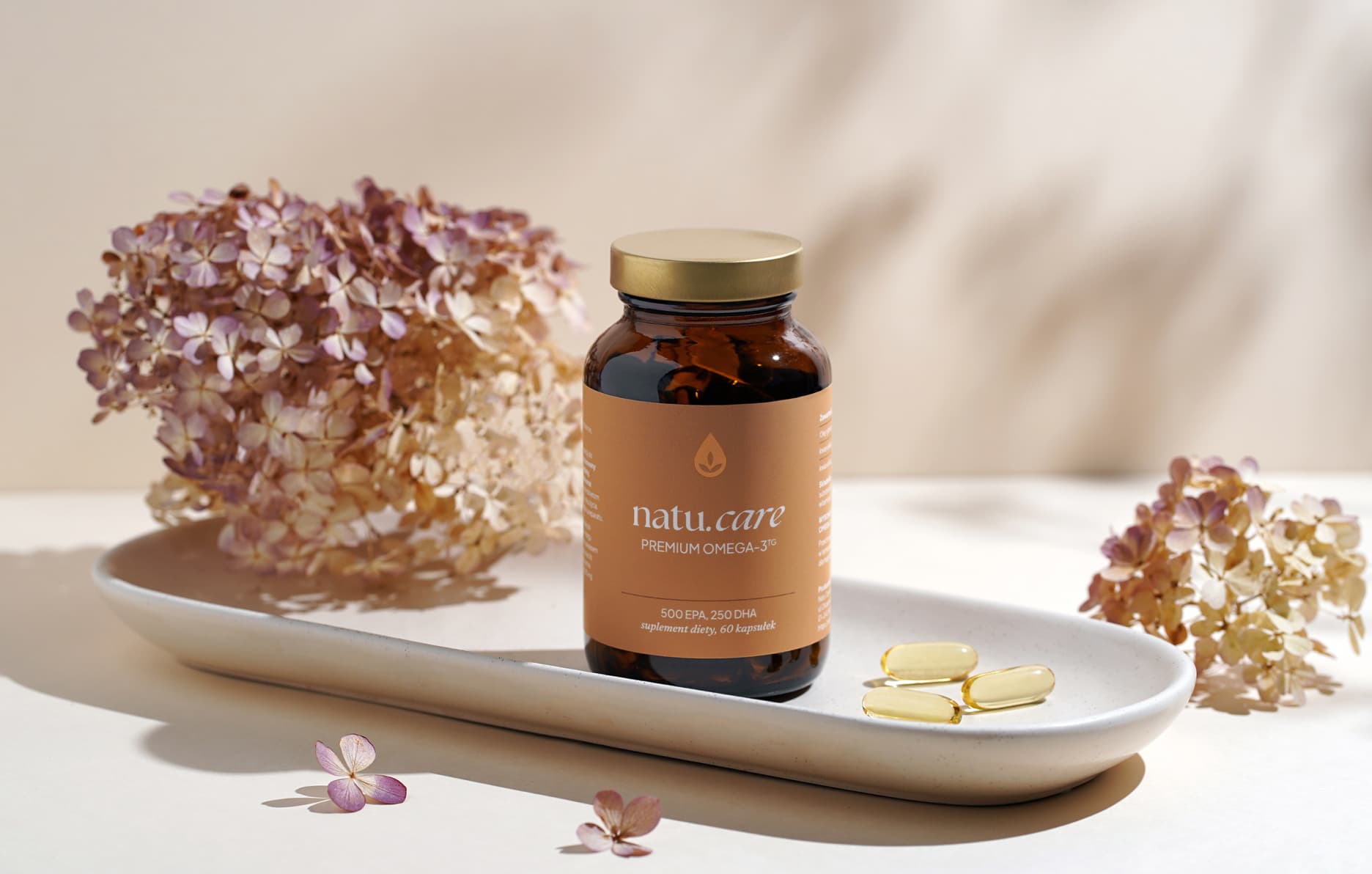
Sprawdź, za co pokochały go tysiące klientek Natu.Care Premium Omega-3ᵀᴳ -15% z kodem BLOG15
Natu.Care Omega-3ᵀᴳ Premium
Natu.Care Omega-3ᵀᴳ Premium dla zdrowia serca, mózgu i odporności. Najlepsza przyswajalność. Optymalna dawka 750 mg. Przebadana przez niezależne laboratorium.
Zobacz więcej
Produkt ma super skład, transparentną etykietę i co dla mnie jest ważne – małe kapsułki do połknięcia. Nie ma też nieprzyjemnego efektu odbijania rybą, który miałam spożywając inne produkty. Widzę znaczną poprawę odporności. Polecam!@Kasia P.
See also:
Summary
- .
- Probiotics should not be taken by people with certain serious illnesses, such as immune disorders, cancer, certain intestinal disorders.
- Probiotics are not recommended for people with certain serious illnesses.
- Probiotics can also cause harm when taken in excess: in too large daily portions or for too long a period of time.
- Probiotics can also cause harm when taken in excess: in too large daily portions or for too long a period of time.
- An overdose of probiotics can lead to SIBO syndrome, an overgrowth of bacteria in the small intestine that causes gastrointestinal distress.
- Probiotics can also cause gastrointestinal distress.
- In some people, probiotics may cause mild side effects such as bloating, gas and diarrhoea. .
- Probiotics can cause allergic reactions. If you are allergic or have food intolerances, check the formulation carefully before use.
FAQ
.Can a probiotic be taken without an antibiotic?
.Yes, probiotic can be taken without an antibiotic. Probiotics are particularly recommended during and after antibiotic treatment, but can be taken independently. They are beneficial for intestinal health, improve digestion and strengthen immunity. Prophylactic use of probiotics is recommended, for example, before travelling to countries with a different climate to protect against so-called traveller's diarrhoea.
After how long does a probiotic take effect?
.Typically, you may notice the first effects of taking probiotics after 1-2 weeks of regular use. For example, if you suffer from digestive problems, you may feel an improvement after just a few days. But the length of time also depends on the state of your health. With very depleted bacterial flora, you will have to wait longer for the effects.
What is important is that you do not stop the treatment as soon as you feel an improvement. Continue it until the end of the recommended period to achieve lasting results.
What is important is that you do not stop the treatment as soon as you feel an improvement.
Can you overdo probiotics?
Yes, it is possible to overdo probiotics. Take probiotics as directed by your doctor or pharmacist. Excessive amounts can lead to side effects such as bloating, gas, abdominal pain or even infections.
Magister of Pharmacy Katarzyna Grajper also emphasises that the use of probiotics in too large quantities, can hinder the building of our own unique microflora in the gut.
.
Probiotics are designed to restore the balance of the intestinal microflora, but too much of them can disrupt this balance and lead to an overgrowth of bacteria. Therefore, use probiotics in moderation and do not exceed the recommended dose.
Do probiotics harm the liver?
.No, probiotics do not harm the liver. On the contrary, they can be beneficial. Probiotics are live microorganisms that, when taken in the right doses, have a beneficial effect on human health human health. They help to balance the intestinal microflora, which is crucial for the proper functioning of the digestive system. In addition, they support the functioning of the intestinal barrier, which allows fewer toxins to enter the body. This action also relieves the burden on the liver, which is responsible for detoxifying the body.
When to stop taking a probiotic?
.Stop taking probiotic if you observe worsening gastrointestinal symptoms or allergic reactions. Probiotic preparations should also be discontinued when the treatment period recommended by your doctor or the manufacturer of a particular product has expired.
Can everyone take a probiotic?
.Probiotics are safe for both adults and children. However, some severe illnesses are contraindications to taking them. Preparations with probiotic bacteria should be avoided by, among others, people undergoing chemotherapy, radiotherapy, those with severely reduced immunity (e.g. due to congenital disorders, organ transplantation or HIV/AIDS), those with perforations or intestinal obstructions, and patients with a central intravenous catheter.
What can be substituted for probiotics?
.Substitute probiotic supplements with natural sources of healthy bacteria. Consume fermented foods such as natural yoghurt, kefir, pickles, miso or tempeh. These foods are rich in live bacteria cultures that support healthy intestinal flora.
Additionally, eat fibre, which is a food for probiotic bacteria - you'll find it in fruit, vegetables, nuts, seeds and whole grain cereal products. Avoid highly processed foods as these can upset the balance of the microbiota.
Be sure to lead a healthy lifestyle, including exercising regularly - this also affects your gut flora. It's all about maintaining a healthy gastrointestinal tract, which is key to your overall health and your wellbeing.
- .
Resources
.See all
.Amara, A. A., & Shibl, A. (2015). Role of Probiotics in health improvement, infection control and disease treatment and management. Saudi Pharmaceutical Journal, 23(2), 107-114. https://doi.org/10.1016/j.jsps.2013.07.001
Bures, J., Cyrany, J., Kohoutova, D., Förstl, M., Rejchrt, S., Kvetina, J., Vorisek, V., & Kopacova, M. (2010). Small intestinal bacterial overgrowth syndrome. World Journal of Gastroenterology : WJG, 16(24), 2978-2990. https://doi.org/10.3748/wjg.v16.i24.2978
Das, T. K., Pradhan, S., Chakrabarti, S., Mondal, K. C., & Ghosh, K. (2022). Current status of probiotic and related health benefits. Applied Food Research, 2(2), 100185. https://doi.org/10.1016/j.afres.2022.100185
Kechagia, M., Basoulis, D., Konstantopoulou, S., Dimitriadi, D., Gyftopoulou, K., Skarmoutsou, N., & Fakiri, E. M. (2013). Health Benefits of Probiotics: A Review. International Scholarly Research Notices, 2013, e481651. https://doi.org/10.5402/2013/481651
Kligler, B., & Cohrssen, A. (2008). Probiotics. American Family Physician, 78(9), 1073-1078.
Kothari, D., Patel, S., & Kim, S.-K. (2019). Probiotic supplements might not be universally-effective and safe: A review. Biomedicine & Pharmacotherapy, 111, 537-547. https://doi.org/10.1016/j.biopha.2018.12.104
Office of Dietary Supplements-Probiotics. (n.d.). Retrieved 11 August 2023, from https://ods.od.nih.gov/factsheets/Probiotics-HealthProfessional/
Probiotics Uses, Benefits & Dosage-Drugs.com Herbal Database. (n.d.). Drugs.Com. Retrieved November 7, 2023, from https://www.drugs.com/npp/probiotics.html
Sanders, M. E., Merenstein, D. J., Ouwehand, A. C., Reid, G., Salminen, S., Cabana, M. D., Paraskevakos, G., & Leyer, G. (2016). Probiotic use in at-risk populations. Journal of the American Pharmacists Association, 56(6), 680-686. https://doi.org/10.1016/j.japh.2016.07.001
Shahrokhi, M., & Nagalli, S. (2023). Probiotics. In StatPearls. StatPearls Publishing. http://www.ncbi.nlm.nih.gov/books/NBK553134/
.What Are Probiotics & What Do They Do? (n.d.). Cleveland Clinic. Retrieved November 7, 2023, from https://my.clevelandclinic.org/health/treatments/14598-probiotics
- .
Editorials
Meet the team

master of pharmacy
Katarzyna Grajper is a graduate in pharmacy from the Medical University of Gdansk. She works as a Master of Pharmacy in a pharmacy on a daily basis. She tries to constantly expand her knowledge with current guidelines so that the patient can receive competent advice in accordance with EBM (Evidence Based Medicine).

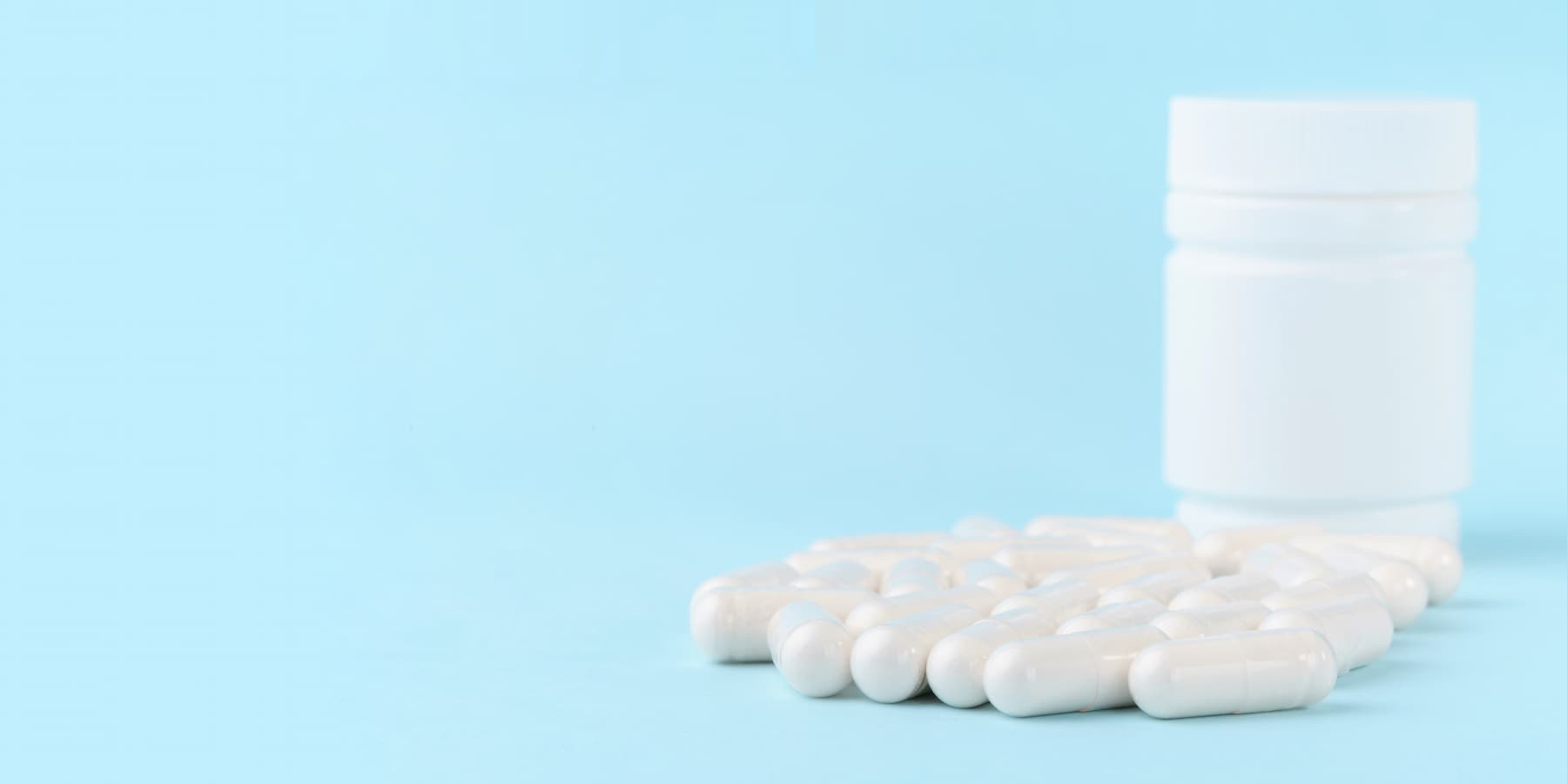
Chondroitin helps the joints and other elements of the body.

Glutathione is one of the most potent antioxidants for supporting the body's health. Find out how it works and where to get it from.

See why hip joints hurt and how to treat their ailments.
